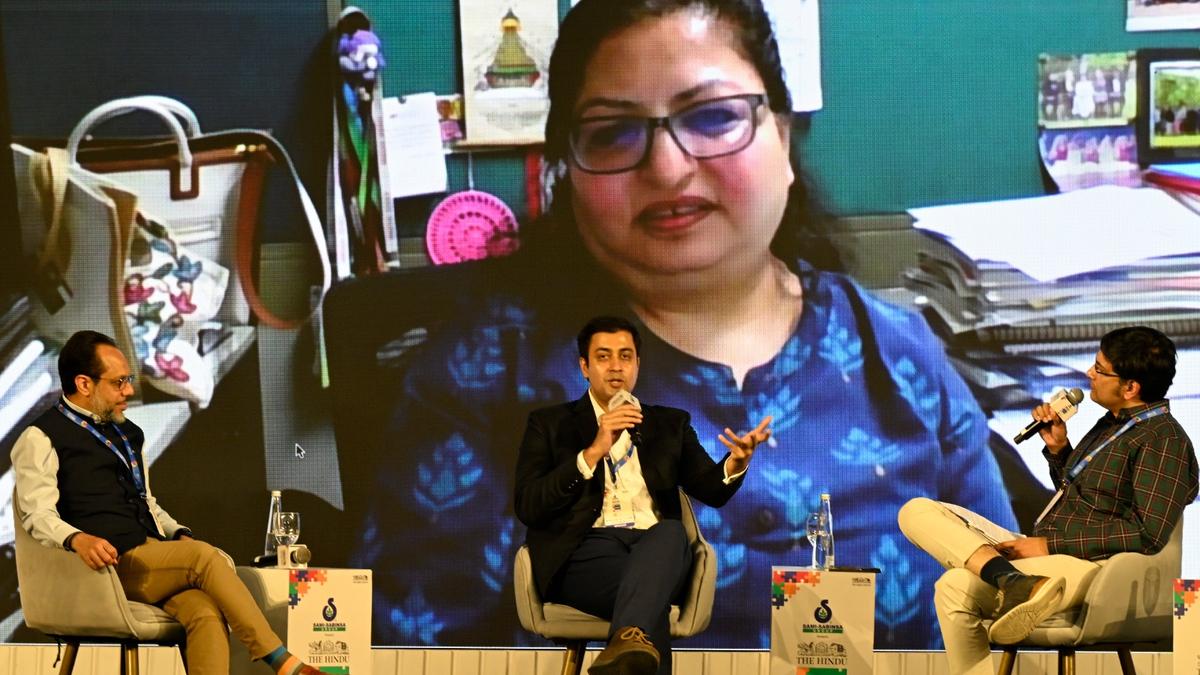We are pushing the ocean to absorb more than it naturally can: Dr. Sambuddha Misra | The Hindu Huddle 2025
We are pushing the ocean to absorb more than it naturally can: Dr. Sambuddha Misra | The Hindu Huddle 2025
| Video Credit:
The Hindu
From the impact of Donald Trump’s election as U.S. President on the climate change discourse to the relevance of a multilateral regime for climate change, the evolution of climate science over the decades, and the need for India to develop its own climate models, experts on Friday offered multi-layered perspectives on one of the most pressing issues of our time.
Arunabha Ghosh, Founder-CEO, Council on Energy, Environment, and Water, said the role of a multilateral regime dealing with climate remained relevant, despite the Trump administration’s decision to withdraw from the Paris Agreement.
Suruchi Bhadwal (online) Director, Climate Change and Air Quality, TERI, (L to R) Dr. Arunabha Ghosh, Founder-CEO, Council on Energy, Environment and Water, Dr. Sambuddha Misra, Chemical Oceanographer and Professor, IISc, and Jacob Koshy, Deputy Science Editor, The Hindu.
| Photo Credit:
K. Bhagya Prakash
“The science is unequivocal. The planet is warming because of human activities, and it is warming much faster than our models have anticipated. If we do not have a common platform to discuss the science and understand how this is impacting us, we are living in a fool’s paradise,” Mr. Ghosh said in a session titled “Climate Calling: Is technology the panacea for a warming planet?”, moderated by Jacob Koshy, Deputy Science Editor, The Hindu.
The Hindu Huddle 2025 Day 1 LIVE updates
Drawing from her experience in the field, Suruchi Bhadwal, Director, Climate Change and Air Quality, TERI, said the progress of climate science meant that “there is far more confidence and evidence out there”.
When she started 25-odd years ago, people were not very convinced about what was being shared about climate change, Ms. Bhadwal said, adding, “Today, we do not have to make the same case to people because they are experiencing those changes.”
While the science is “strong and solid”, there continues to be “the need for the right kind of technologies, finance to be put in place to help countries cope with the situation that may arise,” she said.
The other aspects of climate change that were discussed at the session included the economic feasibility of clean energy, why climate action needs to be part of a country’s industrial policy, the repercussions of ocean warming on marine ecosystems, whether enhanced rock weathering (ERW) can be a climate solution, why a climate change market is needed, the problematic nature of some technologies such as Colossal Bioscience’s reconstruction of the genome of the long-extinct Dire wolf, and whether India could play a significant role in contributing to climate change research.

“In terms of India, what I think will matter the most is if we can stop the export of really bright Ph.D. students to the U.S. … because research is student-driven,” Sambuddha Misra, Chemical Oceanographer and Professor, IISC, said.
Published – May 09, 2025 08:34 pm IST
